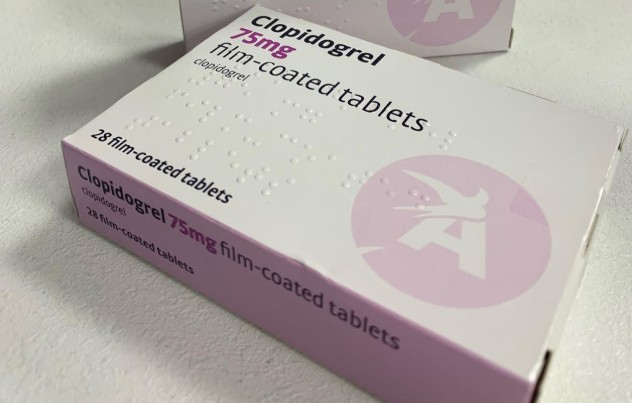UK Study Highlights Clopidogrel’s Superiority Over Aspirin in Heart Attack and Stroke Prevention
A major shift in heart disease prevention could be on the horizon. New research indicates that clopidogrel may outperform aspirin in reducing the risk of heart attacks and strokes.
Aspirin, the staple over-the-counter medicine used for pain relief, fever, inflammation, and cardiovascular protection, has long been a household name.
Yet, findings presented at the European Society of Cardiology (ESC) congress and published in The Lancet suggest that clopidogrel could be the more powerful option for protecting the heart.
In a comprehensive study involving nearly 29,000 patients with coronary artery disease (CAD), researchers discovered that clopidogrel lowered the likelihood of major cardiovascular events, including heart attacks, strokes, and cardiovascular deaths, by 14% more than aspirin.
PANTHER-2 IPD: Clopidogrel vs Aspirin for Secondary Prevention of CAD
7 RCTs and 28,982 patients
At 5.5 years, MACCE was less common with clopidogrel than aspirin (HR 0.86, p=0.0082)
No difference in bleedingOur findings now in @TheLancet @vlgmrc @paolocalabro1 pic.twitter.com/oTwxevqZLW
— Felice Gragnano (@FeliceGragnano) September 1, 2025
Crucially, this enhanced protection did not lead to an increased risk of serious bleeding.
Clopidogrel, an antiplatelet drug also sold under the brand name Plavix, works by blocking the P2Y12 receptor on platelets, reducing blood clot formation. It is frequently prescribed alongside aspirin for patients recovering from stent procedures.
The ESC results are reinforced by a meta-analysis in the BMJ, which reviewed P2Y12 inhibitor monotherapy, including clopidogrel and ticagrelor, in over 16,000 patients.
The study demonstrated a 23% lower combined risk of heart attack, stroke, or cardiovascular death when compared with aspirin alone, without additional bleeding concerns.
Experts suggest this could have wide-reaching implications for global heart disease treatment guidelines. Clopidogrel presents several potential benefits:
- Better protection: It significantly reduces adverse cardiac events more than aspirin.
- Comparable safety: No extra risk of major bleeding.
- Affordable and accessible: Available as a generic medication.
- Broad efficacy: Benefits extend to patients with genetic or clinical variations affecting drug response.
Nevertheless, specialists caution that more long-term studies and cost-effectiveness analyses are necessary before clopidogrel can fully replace aspirin. At present, these findings mainly apply to patients with stable coronary artery disease or those who have had stent insertions.
Doctors stress: “Patients should not alter their medications without medical guidance, as treatment choices must be tailored to individual health conditions, genetic factors, and medical history.”
With cardiovascular disease remaining a leading cause of death in the UK, these findings could influence future antiplatelet therapy strategies and spark further research into personalised heart care.






